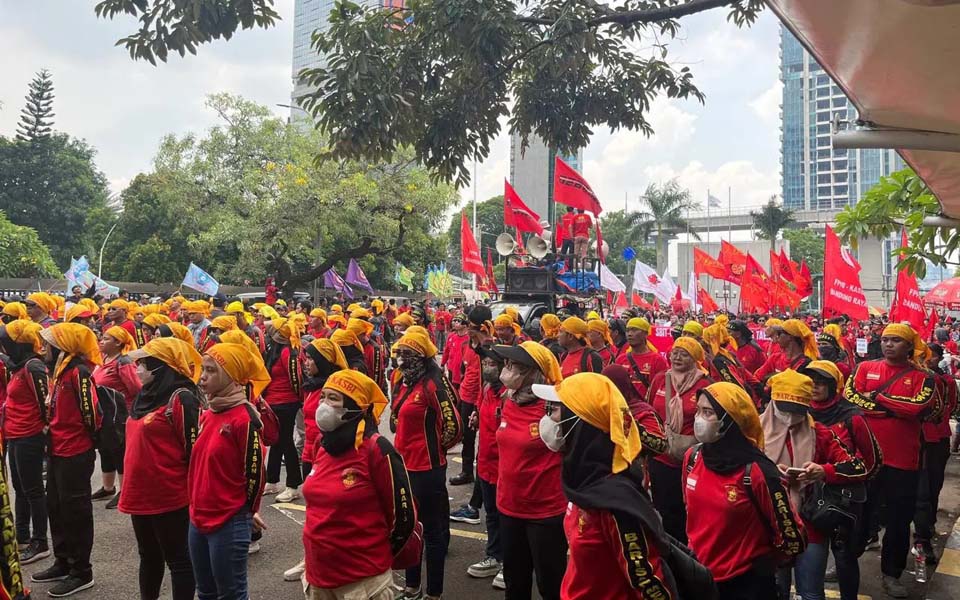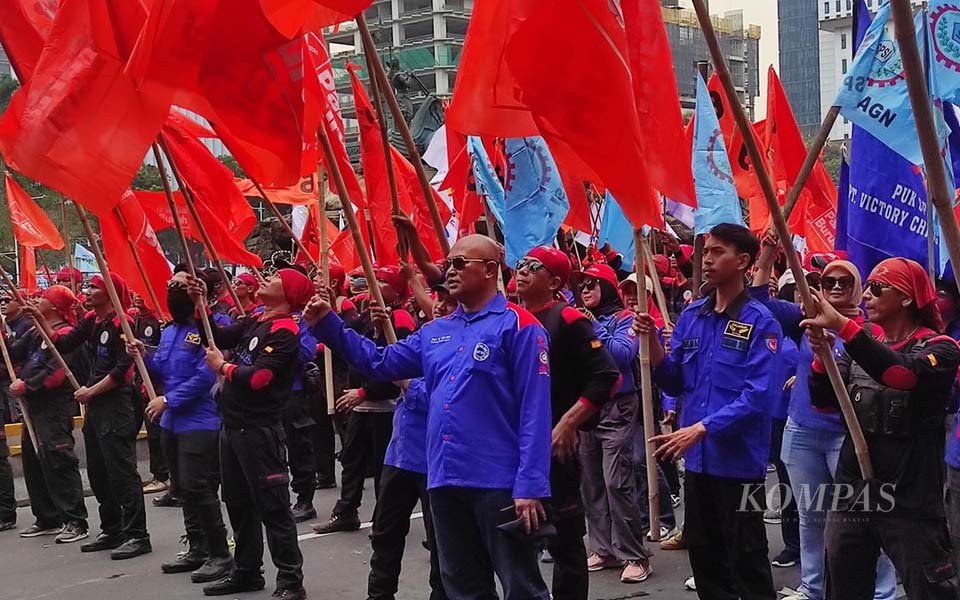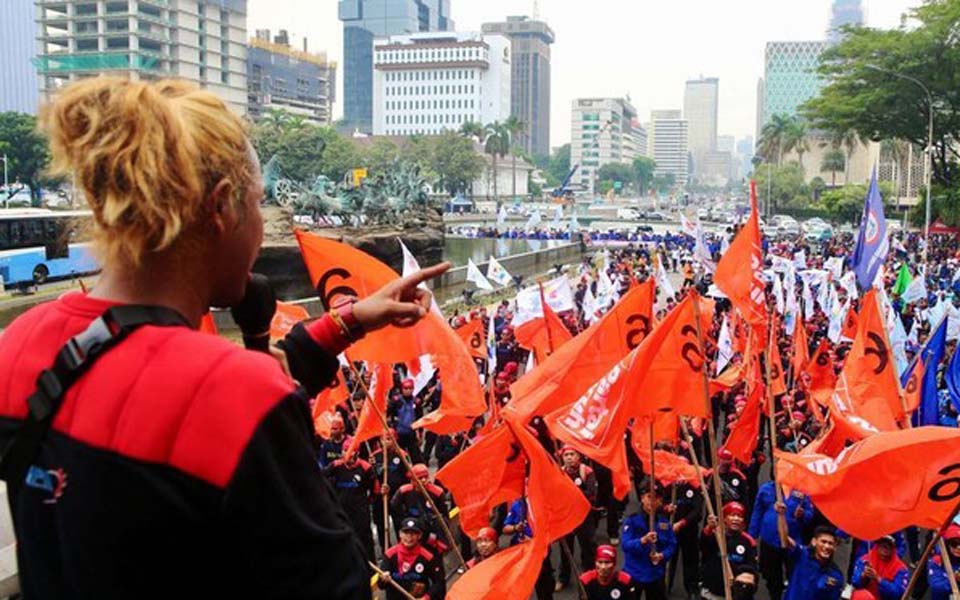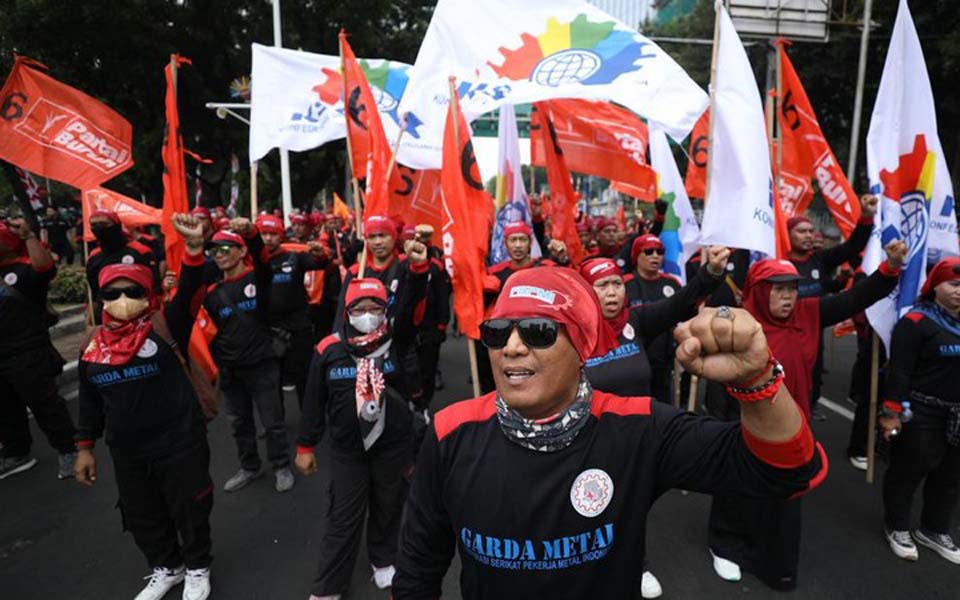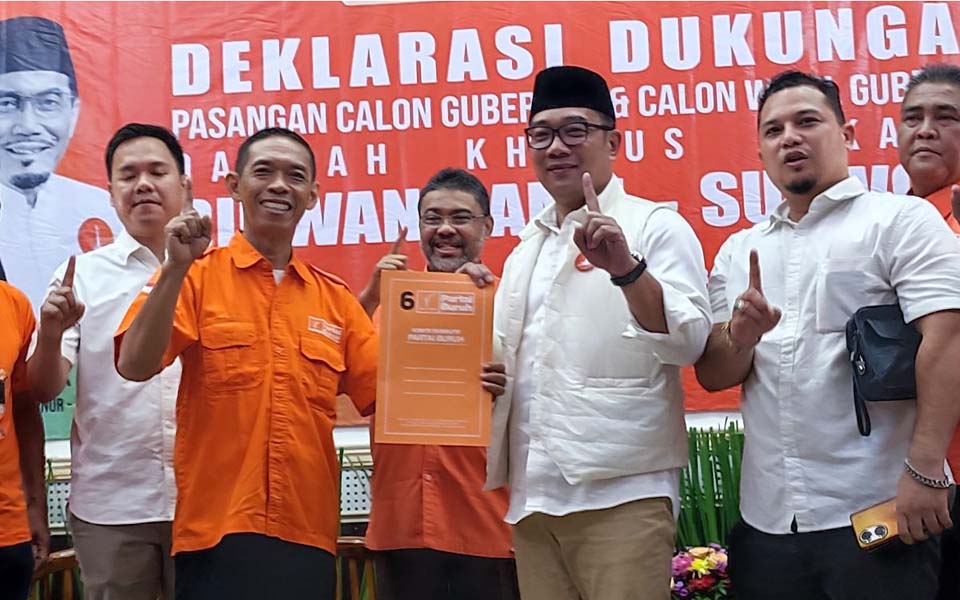Jakarta – Mother’s Day, which is commemorated on December 22 each year, has different meanings. There are some who see it as a form of respect for the contribution by mothers and wives who struggle to take care of the family.
The strength of mothers who dedicate themselves for the sake of being the backbone of the family has also taken on its own meaning on Mother’s Day. But what is the real meaning of Mother’s Day?
Women’s liberation activist Nursyahbani Katjasungkana says that Mother’s Day means more than just celebrating the contribution made by mothers and wives.
On December 22 this year, hundreds of women held a march to the State Palace in Central Jakarta under the theme “Women Heal the Nation” (Perempuan Meruwat Negeri), which was organised by the Women’s Awakening Alliance (Aliansi Perempuan Bangkit).
Aside from articulating demands related to issues of women and politics, the action was also aimed at redefining the meaning of Mother’s Days for all society.
“Today commemorates 91 years since the Women’s Movement Congress which in 1951 was declared as Mother’s Day. Since then women have largely been portrayed as wives and housewives. We want to redefine Mother’s Day as the women’s awakening [day]”, said Katjasungkana, one of the protest initiators, in Jakarta on Sunday December 22.
Katjasungkana revealed that since the era of Indonesia’s founding president Sukarno, Mother’s Day has been seen as only focusing on the role of wives and housewives.
According to Katjasungkana, the Women’s Movement Congress 91 years ago involved some 1,000 women who gathered together to discuss the problems of education and their political rights. Katjasungkana said that today should take up the women’s movement and articulate the rights of women and marginal groups.
“Today should become the women’s awakening movement”, said Katjasungkana.
“But we know that the women’s movement in 1951 declared that December 22 would become Mother’s Day, and since that time the meaning has being glorified to become wives who take care of the home. This is what is mostly depicted rather than a national movement”, she said.
Initially, Mother’s Day was commemorated to remember the contribution and spirit of women in struggling for national independence. The declaration of December 22 as Mother’s Day was made by President Sukarno.
On December 22, 1928 the first Indonesian Women’s Congress was organised in the Central Java city of Yogyakarta. The congress, which was held at the Dalem Jayadipuran, was attended by around 30 women’s organisation from 12 cities across Java and Sumatra.
The congress was inspired by the Youth Pledge on October 28, 1928. Infected with the spirit of these youths, which set women’s spirits ablaze, they organised the congress. The congress was intended to cultivate unity between different women’s organisation which at the time tended to organise independently.
At the third congress in the West Java provincial capital of Bandung in 1938, it was decided that December 22 would become Mothers Day. Then on 25th Women’s Congress on December 22, 1959 President Sukarno through Republic of Indonesia Decree Number 316/1959 declared that each year December 22 would be commemorated as Mother’s Day.
On Mother’s Day this year, in order to reclaim the real meaning of the women’s movement, several professional labour organisations formed the Women’s Awakening Alliance.
It is hoped that the alliance can restore the meaning of Mother’s Day to become a momentum for the awakening of women to take up different issues including the political situation which has a huge impact on women.
“The current government is still far from [making any real] effort to [accommodate] women. The [ratification of the] RUU-PKS [Draft Law on the Eradication of Sexual Violence] has been delayed and marginalised because the deliberations on the RUU-PKS keep being postponed, the state doesn’t accommodate the needs of women. The state must include gender perspectives in policy making”, said activist and Indonesian Feminists representative Dea Safira. (ptj/chs)
[Translated by James Balowski. The original title of the article was “Mengembalikan Makna Perempuan di Hari Ibu”.]






